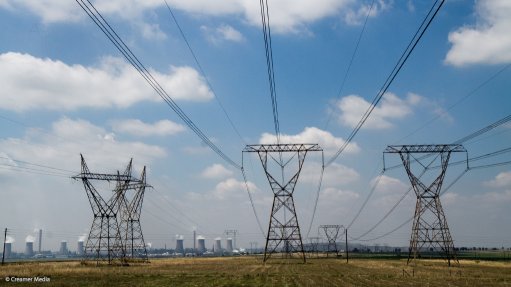
IMPROVING POWER DISTRIBUTION
Improving power distribution is just one of the themes that will be discussed at Power-Gen Africa
Photo by: Duane Daws
By bringing together over 2 000 stakeholders from across the power value chain – from generation through to end-users – Power-Gen Africa 2016 aims to facilitate networking and knowledge sharing that catalyses power sector advancement across the continent, says energy consultancy firm EON Consulting MD Bertha Dlamini.
She notes that the 2016 edition of Power-Gen Africa will highlight a number of key themes. This includes the maintenance and management of ageing assets; the nuclear power question; the gamut of renewable energies; and advanced technologies and smart grids. The conference has also expanded its reach to include energy-heavy industries such as mining, plastics and manufacturing.
Under the theme ‘Creating power for sustainable growth,’ Power-Gen Africa 2016 will run from July 19 to 21 at the Sandton Convention Centre, with a strong focus on renewable energy, sustainable power generation and distribution, pan-African power provision and smarter management and grids.
Because power challenges cannot be seen in regional isolation, Dlamini notes, greater pan-African participation has been encouraged by engaging more pan-African power stakeholders in the event advisory boards. A delegation party of over 50 sub-Saharan Africa VIPs from Botswana, Ethiopia, Ghana, Lesotho, Namibia, Nigeria, Swaziland, Tanzania, Uganda, Zambia and Zimbabwe, among others, has been invited to attend as guests and participate in scheduled business-to-business matchmaking sessions with potential business partners and suppliers.
Dlamini says Power-Gen Africa is a valuable platform for companies offering services, and producing products and technologies for the electricity value chain to meet and share information on developments in the industry and emerging technologies. Participants will gain exposure to the latest energy distribution technology across all sources of energy, innovative generation solutions, developments in microgrids and smart solutions and high-technology solar energy solutions. She adds that delegates will, moreover, receive information from world-class speakers and experts in the energy sector from all over the world.
Independent power producer EA Power CEO Gilman Kasiga further notes that the event offers an opportunity for potential investors and financiers to meet utilities and power sector stakeholders to boost collaboration and fast-track projects across Africa. This is crucial, he maintains, as the most effective route to power security in Africa lies in private-sector investment.
He points out that the US’s Power Africa plan, an initiative introduced by US President Barack Obama to increase access to electricity in Africa, is one of the most significant initiatives in recent times to support power infrastructure development in Africa. “Not only did this initiative result in huge financial commitments, but it also showed investors the opportunities available in Africa,” he says.
However, he notes that investors need assurances of return on their investments and thus stresses that countries must offer realistic power pricing and an environment that is conducive to investment. He adds that many regions have a long way to go in attracting private-sector investment.
“There are a lot of stress points in Africa, and this deters investment . . . tax concessions are [inadequate] to bring investment. You also need elements such as a stable economy, assured returns, the ability for investors to access their forex, good sources of energy, supporting infrastructure and skilled labour,” he explains.
Electricity company Edison Power Group CEO Sindiswa Mzamo further notes that the Power-Gen Africa 2016 programme is heavily ‘action-orientated’ in a bid to ensure that delegates are given direction in terms of implementing projects. She highlights that this attitude is especially important for distribution programmes.
“At the end of the day, we need to ensure that the distribution programmes we have agreed on within our national entities are implemented . We are hampered by the convoluted structure of electricity utilities and by ageing infrastructure. Utilities need to start making their systems smarter and ensuring that the distribution channel functions more effectively,” she says.
State-owned power utility Eskom generation sustainability senior GM Willy Majola adds that the company’s partnership with Power-Gen Africa since 2012 has proved to be beneficial, as the event offers the opportunity to meet many industry players. He highlights how crucial forming industry connections is, emphasising that collaboration is key in addressing the power challenges faced in South Africa. “We are well aware of the big responsibility on our shoulders and the impact electricity has on our economy . . . We realise we cannot do it on our own,” he says.
Events organiser PenWell MD Glenn Ensor also highlights the networking advantages of the event: “Although we know the power industry drivers differ by region, there are similar issues being wrestled with around the world. Through Power-Gen Africa, we bring international expertise here, so that Africa can learn from other regions and move forward in the most effective way,” he concludes.